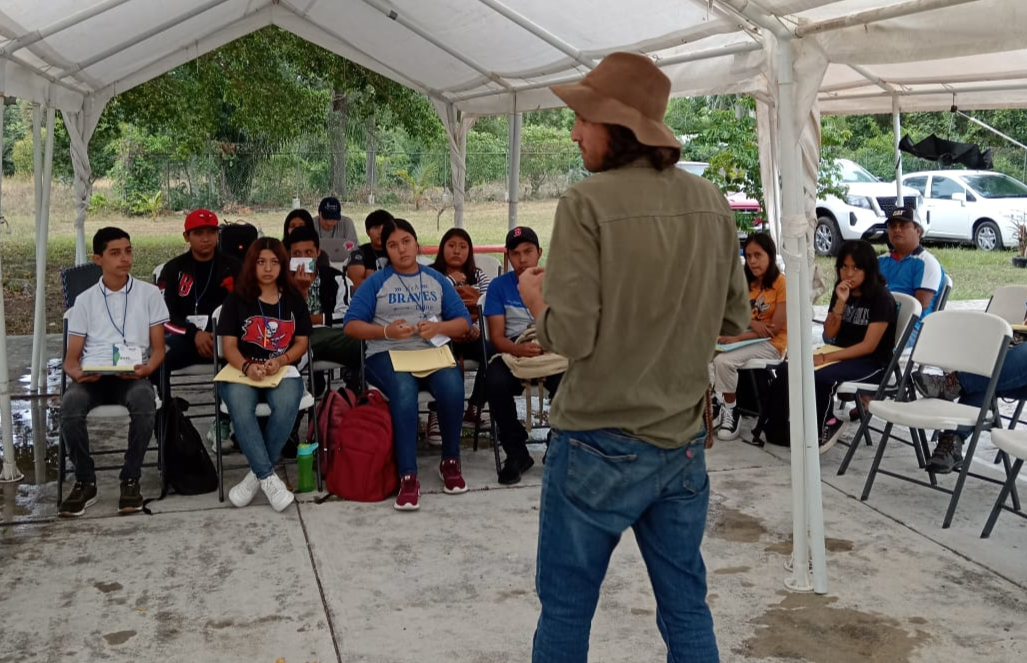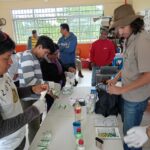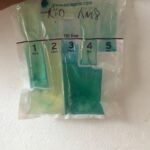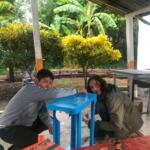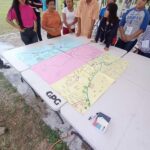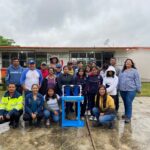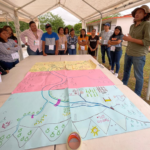From 6 to 10 October, the second module of Escuela del Agua (‘Water School’) was held in the community of Países Bajos (Kilometro 8) in conjunction with the Cántaro Azul organisation.
Cántaro Azul is a non-profit organisation with 16 years’ experience based in San Cristóbal de Las Casas, Chiapas. Its mission is to bring about sustainable practices in the management of water, hygiene and sanitation in Mexico, from a perspective of rights, resilience and equity. It is working to achieve this by means of three strategies: implementation of water, hygiene and sanitation solutions; systemic change and advocacy; and knowledge management.
Using different dynamics, Pablo Suárez Dávila, expert and facilitator at Cántaro Azul, explored together with the participants the use of water in a watershed through an exercise that involved them tracing out plots of land where they could carry out the activities they wanted, taking into account the close proximity of a river and the availability of economic resources. The participants reflected on their importance as individuals with regard to making decisions in the community to properly manage their land and the natural resources they possess.
On the second day, they installed the piping system for the Mesita Azul, an environmentally friendly technology for the purpose of providing access to water in schools that complies with health and hygiene parameters. This system is designed to prevent gastrointestinal illnesses, and thereby preventing absenteeism and malnutrition, which have a direct impact on children’s physical and cognitive development. In conclusion, the system aims to guarantee access to safe water, which is a fundamental element for a life of dignity and a basic human right. In addition, the creation of a school committee was proposed for the maintenance and safeguarding of the mesita azul and to work together with the environmental educators in order to ensure the proper and optimum use of this resource.
The third session dealt with the following topics: water quality, the water cycle and sanitation. The participants identified the ways in which water is distributed in the communities and reflected on the issues affecting the availability of safe water in their homes.
“The Mesita Azul is a safe water system, designed by Cántaro Azul in collaboration with the University of California Berkeley, USA, which incorporates the flocculation (agglomeration of contaminated water particles), filtration and disinfection of water, for use in different rural contexts. The main component of the Cántaro UV technology is a system for water disinfection using ultraviolet light, certified in 100% bacterial removal efficiency, with a minimum lifetime of 150,000 litres of water,”explained Pablo Suárez Dávila, expert and facilitator at Cántaro Azul.
“Before, we used to drink well water and think nothing of it. But if I gave my children well water, it would make them sick. Whenever we run out of bottled water and have to drink well water, I boil it so that it doesn’t harm us. We no longer feel safe drinking the water,”affirmed Antonia García Santiago, a resident of the Benito Juárez community.
This second module has significantly contributed to highlighting the fact that the communities along the Ruta de Los Kilómetros show clear interest in implementing alternatives that will help to improve the availability of and access to water.

